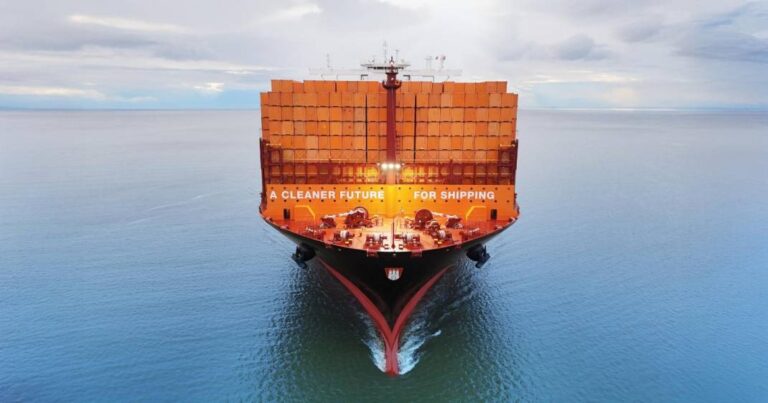Hapag-Lloyd and DHL Join Forces for Sustainable Shipping

In a significant step towards a greener future, Hapag-Lloyd and DHL Global Forwarding have entered into a three-year framework agreement aimed at decarbonizing supply chains. This partnership focuses on purchasing Scope 3 greenhouse gas (GHG) emission reductions through the use of sustainable marine fuels in Hapag-Lloyd’s fleet. The agreement marks a pivotal moment in the shipping industry’s transition to more sustainable practices.
Milestone Order and Innovative Mechanisms
The collaboration kicked off with the successful execution of an initial order in July 2025, which involved 25,000 tons of CO2e well-to-wake (WTW) emission avoidance. The biofuels utilized are second-generation products derived from waste and residue feedstock, underscoring both companies’ commitment to reducing greenhouse gas emissions. Danny Smolders, Managing Director of Global Sales at Hapag-Lloyd, expressed enthusiasm about the partnership, stating, “We are delighted to have completed this order with DHL, demonstrating the feasibility and effectiveness of using sustainable marine fuels to reduce Scope 3 emissions through our Ship Green product.” He emphasized the power of collaboration in driving meaningful change in supply chains.
Casper Ellerbaek, Head of Global Ocean Freight at DHL Global Forwarding, echoed this sentiment, highlighting the agreement as a crucial step toward a decarbonized shipping industry. He noted, “We are thrilled to partner with Hapag-Lloyd in driving the adoption of sustainable marine fuels and the book and claim mechanism, ultimately empowering our customers to achieve their climate goals.” This innovative “book and claim” mechanism allows customers to claim Scope 3 emission reductions for their transport, separate from the actual use of the fuel. This decoupling is vital, especially given the current limitations and higher costs associated with sustainable marine fuels.
Commitment to Decarbonization Goals
Both Hapag-Lloyd and DHL are dedicated to ambitious decarbonization targets. Hapag-Lloyd aims for net-zero fleet emissions by 2045, while DHL is striving for net-zero emissions by 2050. Offering sustainable logistics solutions is a key strategy for achieving these goals. Hapag-Lloyd has been utilizing second-generation biofuels since 2020 and has provided customers with the option to claim emission reductions through its “Ship Green” product since 2023. This product utilizes biofuel blends instead of traditional fossil marine fuel oil (MFO).
DHL’s GoGreen Plus products also focus on decarbonization, leveraging sustainable fuels and low-carbon technology across its core offerings. These products enable customers to reduce their indirect Scope 3 emissions arising from transportation and distribution, while also assisting with voluntary greenhouse gas (GHG) emissions reporting. Through their collaboration, Hapag-Lloyd and DHL are not only advancing their sustainability goals but also paving the way for a more sustainable future in the shipping industry.
